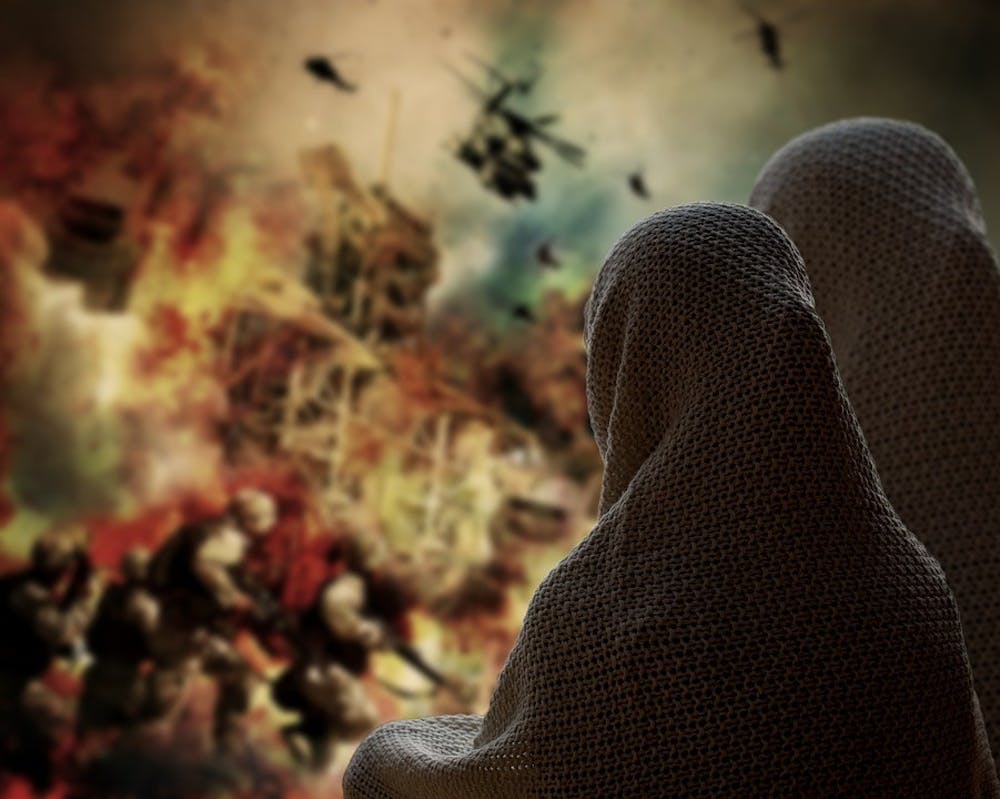By Maddie LaPlante-Dube, Opinion Editor
In August, a photo and video footage of a Syrian five-year-old named Omran Daqneesh surfaced after a deadly airstrike hit his home in Aleppo.
The footage shows Omran, dazed, dusty, shocked and bloody, sitting quietly in the back of an ambulance. The ambulance is fluorescent and he sits in an orange chair, wordless, breathing through his nose. He lifts his hand to his bloody forehead, wipes it and then looks at his palm with something like surprise or bewilderment. He wipes the blood off on the seat.
This footage follows another, equally devastating and viral photo of three-year-old Alan Kurdi, the boy who washed up dead on a beach in Turkey after he and his family tried to flee Syria to Greece.
When I watched the footage of Omran blinking, dazed, all I could think was, "Why are they just zooming in on him? Why are they leaving him alone like that? What are these camera men doing for him?" A photographer squeezed himself into the shot, clicking pictures of Omran, stretching his arms into the back of the ambulance to get a better angle. All the while, this five-year-old boy is sitting there, bleeding.
Situations like this beg the question: is this kind of journalism moral? If you're not helping these people, whose primary prerogative in the moment that these shots are being captured is to stay alive, then what are you doing? We know that shots like this are newsworthy, but are we capturing newsworthy content at the expense of the safety and comfort of people who are dead, dying or will be permanently traumatized?
Throughout history, journalists \0xAD-- especially photojournalists -- have been confronted with this question. Whose instinct is it to first snap a picture of a dead three-year-old on a beach before going to see if he is alive? Is that even okay? Just recently, Facebook restored a post they had deleted of the iconic photo taken by Nick Ut of a naked girl screaming and running through a street in Vietnam, fleeing from napalm (it was, ridiculously, censored for nudity). That photo won a Pulitzer Prize. Is it okay for Nick Ut to enjoy achievement and fame for a photo that depicts real suffering?
My first answer to all of this would be that yes, these images and the way they are being sourced and prioritized is immoral and reflective of our cultural obsession with viral visual content that distances us from the real problem.
But then Gary Johnson, the 2016 Libertarian Presidential candidate, asked what Aleppo was during an interview last Thursday. That was when it became obvious to me that this work was necessary not only for an informed public, but also for informed leaders.
This year at the polls, many people are saying they will default to a third-party vote. For many people that means voting for Gary Johnson. Or it means voting for the Green party's Jill Stein, who was just charged with a misdemeanor for spray-painting a bulldozer during an environmental protest in North Dakota. But a vote on a third party is not going to stop either Donald Trump or Hillary Clinton from becoming the next president. Nor is it the smart vote, as evidenced by the above information.
The U.S. is in a tight spot right now and we need to examine our actions closely as we approach this upcoming election in terms of smart, humane foreign policy. The reality is that Omran and his family were not blasted by a domestic bomb. The airstrikes that destroyed Omran's home were Russian. And while Omran can try to wipe the blood from his hands, the U.S. and Russia will never be able to get theirs clean. The candidate that the United States needs is someone who will not blast ISIS out of the water, nor is it someone who is in Putin's back pocket. Be smart with your vote this election, because there are journalists out there doing this job to help you stay informed to do so.
laplanmm@miamioh.edu

